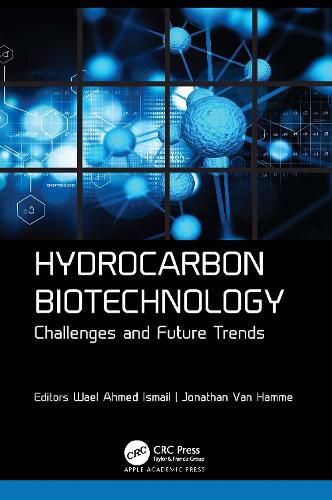Readings Newsletter
Become a Readings Member to make your shopping experience even easier.
Sign in or sign up for free!
You’re not far away from qualifying for FREE standard shipping within Australia
You’ve qualified for FREE standard shipping within Australia
The cart is loading…






This volume offers environmentally friendly technical solutions that can be implemented to solve problems throughout the value chain of the fossil fuel industry. This new book presents an up-to date view of hydrocarbon microbiology and biotechnology, presented by experts around the world with interest in how our expanding understanding of hydrocarbonoclast ecology and physiology can translate to better tools for bioremediation, oil recovery, bio-upgrading of unconventional crudes, the development of biorefining technologies, and the production of hydrogen and electricity from hydrocarbon wastes. The common theme across the chapters in this book is an interest in how developing hydrocarbon biotechnologies may reduce our impact on the global environment.
Written by eminent scientists from both academia and industry, the book starts with a historical perspective on hydrocarbon chemistry and formation, petroleum microbiology, and biotechnology. This is followed by a review of recent research developments in bioremediation and other biotechnologies for hydrocarbons, the principal constituents of petroleum and natural gas.
$9.00 standard shipping within Australia
FREE standard shipping within Australia for orders over $100.00
Express & International shipping calculated at checkout
This volume offers environmentally friendly technical solutions that can be implemented to solve problems throughout the value chain of the fossil fuel industry. This new book presents an up-to date view of hydrocarbon microbiology and biotechnology, presented by experts around the world with interest in how our expanding understanding of hydrocarbonoclast ecology and physiology can translate to better tools for bioremediation, oil recovery, bio-upgrading of unconventional crudes, the development of biorefining technologies, and the production of hydrogen and electricity from hydrocarbon wastes. The common theme across the chapters in this book is an interest in how developing hydrocarbon biotechnologies may reduce our impact on the global environment.
Written by eminent scientists from both academia and industry, the book starts with a historical perspective on hydrocarbon chemistry and formation, petroleum microbiology, and biotechnology. This is followed by a review of recent research developments in bioremediation and other biotechnologies for hydrocarbons, the principal constituents of petroleum and natural gas.